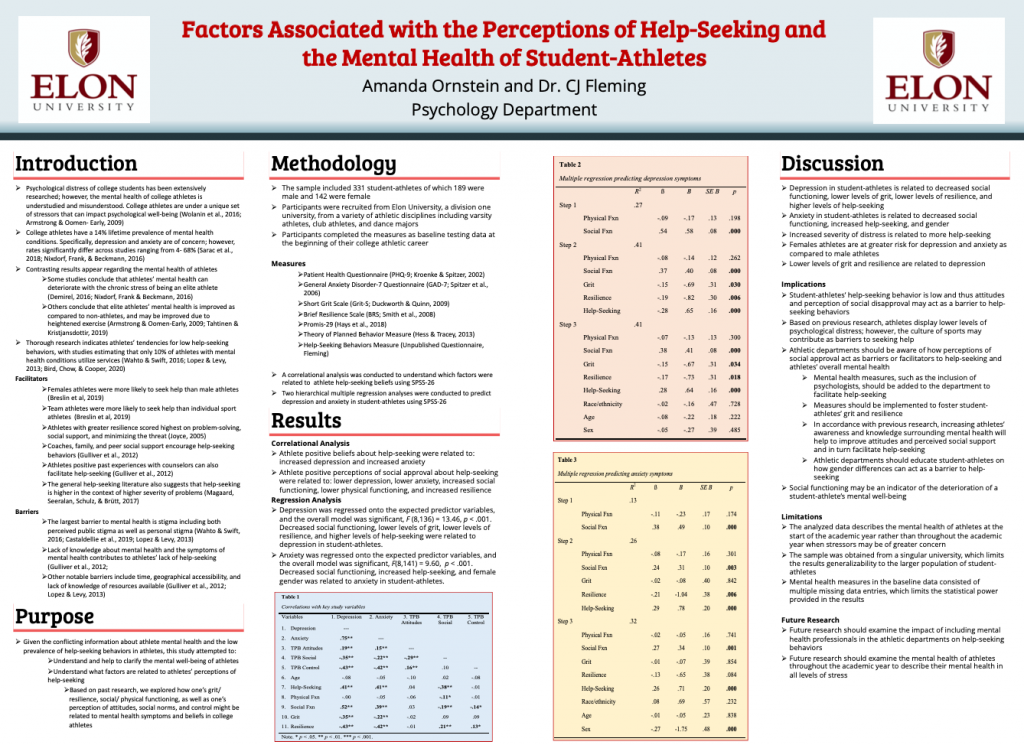Amanda Ornstein
Class of 2021
- Psychology

Factors Associated with the Perceptions of Help-Seeking and the Mental Health of Student-Athletes
Project Mentor:
- CJ Fleming, assistant professor of psychology
Project Abstract
Student-athletes are under a unique set of stressors due to their extensive time commitment at a university not only athletically, but academically and socially as well (Wolanin et al., 2016;
Armstrong & Oomen- Early, 2009). The literature surrounding athlete mental health is contradictory. Some studies suggest that athletes have a deteriorated mental health state due to chronic stress, while other studies suggest an improved mental health state due to an increase in exercise (Demirel, 2016; Tahtinen & Kristjansdottir, 2019). While research is inconsistent about student-athletes’ overall mental health, there is consistent evidence to suggest low help-seeking tendencies (Bird, Chow, & Cooper, 2020; Lopez & Levy, 2013). Given the conflicting information about athlete mental health and the low prevalence of help-seeking behaviors in athletes, this study attempts to clarify and understand student-athletes mental health and the factors associated with their beliefs about help-seeking. The purpose of our study was to examine how grit/resilience, social/physical functioning, and one’s attitudes and perceptions of social norms and control are related to mental health symptoms and beliefs in college athletes. Analysis of correlations indicated that positive beliefs about help-seeking were related to increased depression and anxiety. Positive perceptions of social approval were related to lower depression, lower anxiety, increased social functioning, lower physical functioning, and increased resilience. Analysis of hierarchical regression predicting depression indicated that depression in student-athletes was related to decreased social functioning, decreased grit/ resilience, and increased help-seeking. Analysis of the regression predicting anxiety indicated that anxiety was related to decreased social functioning, gender, and increased help-seeking. Implications of this research suggest that social disapproval may act as a barrier to help-seeking in athletes and contribute to their low help-seeking tendencies as well as how social disapproval can be seen as an indicator of deterioration in student-athletes’ mental health. This study emphasizes a need to include mental health measures in athletic departments at universities, such as including a psychologist on staff, improving grit/resilience, and increasing knowledge about mental health and the resources available to students.
 Download Project Presentation
Download Project Presentation